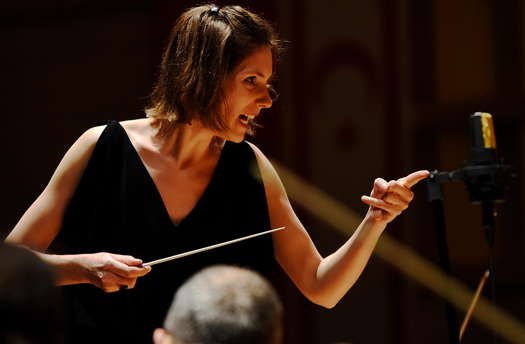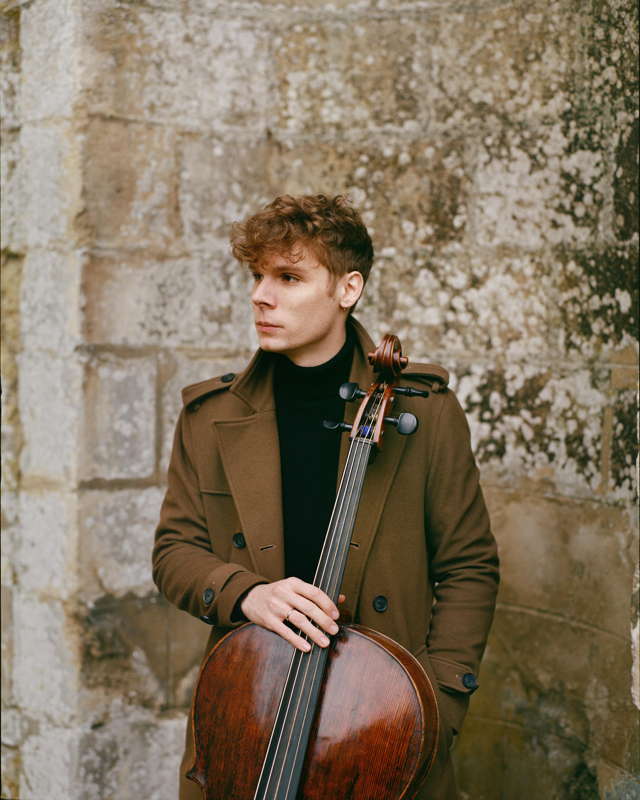 CENTRAL ENGLAND: Mike Wheeler's concert reviews from Nottingham and Derbyshire feature high profile artists on the UK circuit - often quite early on their tours.
CENTRAL ENGLAND: Mike Wheeler's concert reviews from Nottingham and Derbyshire feature high profile artists on the UK circuit - often quite early on their tours.
 DISCUSSION: John Dante Prevedini leads a discussion about Composers, individuals or collective?, including contributions from David Arditti, Halida Dinova, Robert McCarney and Jane Stanley.
DISCUSSION: John Dante Prevedini leads a discussion about Composers, individuals or collective?, including contributions from David Arditti, Halida Dinova, Robert McCarney and Jane Stanley.
- piano trios
- Antonio Lauro
- Nathan Williamson
- Paul Spicer
- Pierre Gennaï
- Michael John Haden: Hymn to Love
- Apple Hill String Quartet
- University of Chicago
Sheer Delight
MIKE WHEELER was delighted with music by Chabrier, Saint-Saëns, J S Bach and Rachmaninov from Bruno Philippe, Chloé van Soeterstède and the Hallé Orchestra
We've got so used to seeing the Hallé Orchestra's now usual platform arrangement, with the second violins to the conductor's right, that finding them on the left of the stage was unexpected - Royal Concert Hall, Nottingham, UK, 5 December 2023.
French conductor Chloé van Soeterstède was at the helm, for a programme with a French first half. Chabrier's Suite Pastorale is a real charmer. The opening 'Idylle' doesn't give away all its secrets at once, and conductor and orchestra caught that ambivalence perfectly. They found the delicate spaces amid the boisterousness of 'Danse villageoise', and brought out the contrast between the softly murmuring cello line that opens 'Sous-bois' and the quirky woodwind lines riding above it. 'Scherzo-valse', kicked up its heels (or, as Chabrier put it, its Auvergnat clogs) vigorously. The whole thing was sheer delight.

Chloé van Soeterstède
The more you get to know Saint-Saëns' music, beyond the popular favourites, the more substantial a figure he becomes. Bruno Philippe was the soloist in his Cello Concerto No 1. The mixture of quicksilver and muscularity without undue strenuousness in the opening section - the work is not divided into separate movements - was well projected. The tiptoe minuet at its centre was treated with utmost delicacy. Philippe's solo musings had real poise, particularly in his gentle trilling as he emerged from the brief cadenza after the central section, over the woodwind's reprise of the minuet. His depth of tone included a sonorous bottom string, and his technique was immaculate, double-stopped octaves and all. Amid the storms of the finale, the performance took the opportunities to acknowledge the way Saint-Saëns can surprise with an unexpected melodic twist.
He was a key figure in the revival of French interest in J S Bach, so Philippe's choice of encore, the Allemande from Bach's solo cello Suite No 1 was particularly apt.

Bruno Philippe
Rachmaninov might well have called his Symphonic Dances a Concerto for Orchestra. Channelling both collective and individual virtuosity, it gives every department a chance to shine. But it's more than just a showpiece. The quiet, expectant opening for strings, and the big gesture for full orchestra that follows, gave notice of the Hallé Orchestra's incisive playing throughout. James Muirhead's saxophone solo had a plangent quality, with his later contributions on bass clarinet having a splendidly oily sound. In fact, the woodwind section as a whole was on particularly good form all evening. The quotation from Rachmaninov's Symphony 1 that rounds off the first movement had a poignancy that suggested Rachmaninov reflecting on what might have been, if it hadn't been for its disastrous premiere.
The second movement's waltz rhythms were irresistibly propulsive, and, not for the first time, I wondered about some kind of undisclosed narrative. The finale, like so much else in Rachmaninov, is haunted by the 'Dies Irae' chant from the Requiem mass. Its first full appearance on woodwind and xylophone was pin-sharp. With vivid, gleaming orchestral colours, and driven by furious energy, the whole performance was intensely gripping.
Copyright © 22 December 2023
Mike Wheeler,
Derby UK



